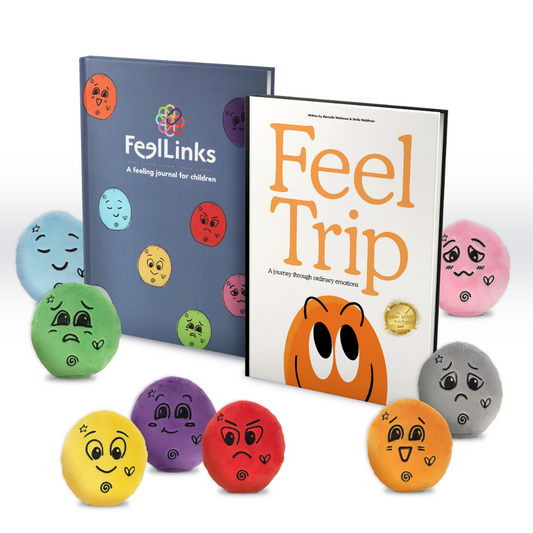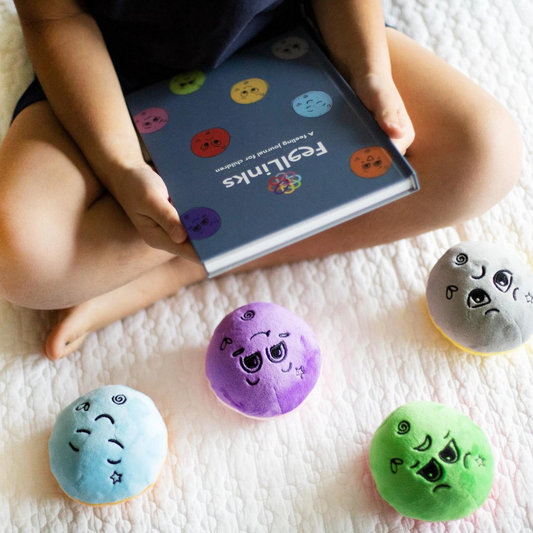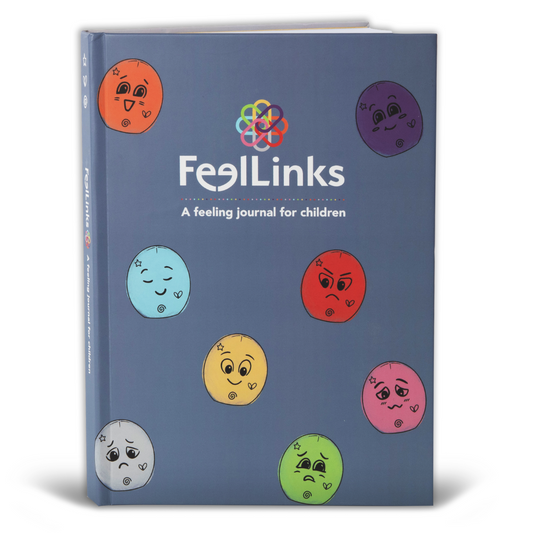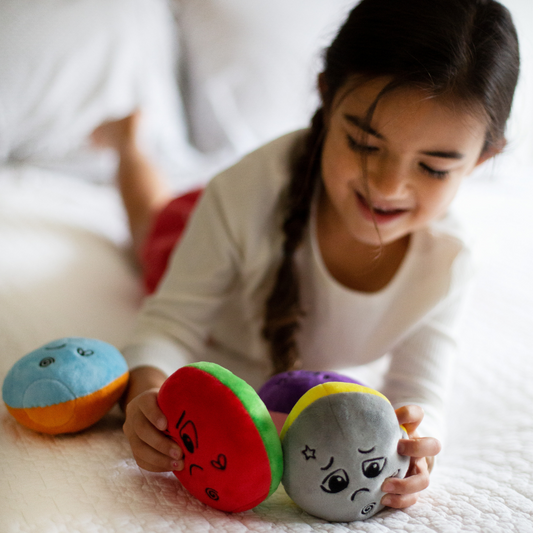10 Child-Friendly Strategies to Help Cope with Fear
Share
As parents, caregivers, and teachers, it’s natural to want to shield children from anything that feels scary to them. However, feelings of fear are a normal part of childhood development, and learning to cope with fear is an essential lifeskill - fear is valid and normal to us all.
Here are 10 child-friendly strategies to help navigate fears with confidence!
1. Listen and Validate - Create a safe space for your child/student to express their feelings without any judgment. Let them know that it’s okay to feel scared and that you are there to listen and support them. Adding our FeelLinks Plush Emotion Dolls to your home or classroom can be a great way to support a child in opening up.
2. Safe Environment - Ensure their surroundings feel secure. You might help them create a safe and cozy space they can go when feeling scared.
3. Deep Breathing and Imagery - Introduce deep breathing techniques (free printables HERE and HERE from our 'resources' page). Using simple breathing exercises and/or visualization techniques can help your child calm down when they feel scared. Be certain to practice these techniques together during calm moments.
4. Positive Self-Talk - Arm your child with positive self-talk to repeat when fear creeps in. Encourage phrases like "I am safe" or "I am brave" to boost their confidence and resilience.
5. Read Books - Choose age/developmentally appropriate books that address courage and overcoming fears. Reading these stories together can help your child feel understood and empowered.
6. Role Play - Act out scenarios that trigger your child’s fears. Together, brainstorm ways to handle those situations in a safe and empowering way. Role-playing can make the process less intimidating and more interactive. We know that children learn and connect through play!
7. Facing Fears - Gradually expose your child to their fears in a controlled and supportive manner. Celebrate their bravery each step of the way and offer of encouragement. *Be cautious with this one. Only doing this if appropriate for what they are fearful of. You are the best judge on that as the caretaker.
8. Reassurance - Remind them that feelings of fear are normal to us all; you feel scared as well. Reassure them that you are there to support, protect, and do all you can do keep them safe.
9. Limit Exposure - Monitor your child’s exposure to movies, TV shows, or video games that can cause fear. Choose age/developmentally appropriate forms of entertainment.
10. Drawing or Writing - Encourage children to express their feelings through drawing or writing about their fears. Our FeelLinks journal is a perfect spot for that!
By implementing these child-friendly strategies, you can help your child develop the resilience and confidence needed to cope with their fear. These strategies can help children manage fears in a positive and empowering way.
*Be sure to seek professional help if you have any questions or concerns with fear significantly impacting your child's daily life or it seems to persist over time. Professional support can provide additional strategies and coping mechanisms specific to your child’s needs.





